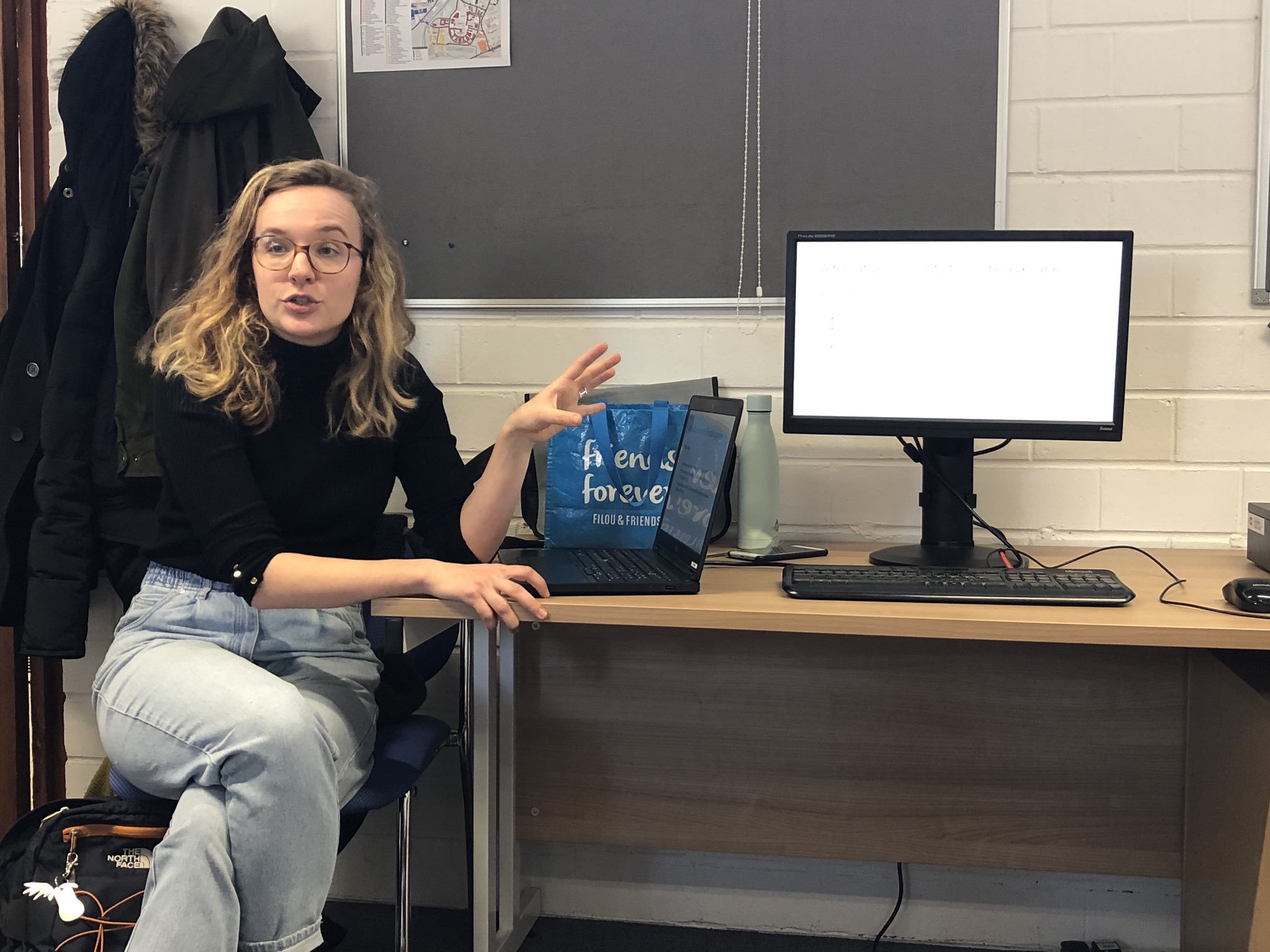They are doing stuff with computers and language and you should check it out!

I was halfway through my six-month research stay at the University of Birmingham when a friend texted me that she’d seen a post on the university website that had made her think of me. The post was about a research group moving from Sheffield to Birmingham, and they were “doing stuff with computers and language and you should check it out”. So I did, and I immediately fell in love with the project. I mailed my supervisor, who got in touch with the Out Of Our Minds team leads; they arranged for me to have a conversation with one of their PhD students, Maciej Borowski, and gave me the opportunity to present my own PhD project at one of their team meetings.
It shouldn’t have been surprising that a team called “Out of Our Minds” felt like home for a member of “Mind Bending Grammars”, my research group at the University of Antwerp. During the first conversation with Maciej, it became apparent that we had been trying to do similar things in our PhDs. We both tried to model language in a quite radically bottom-up fashion, we had been contemplating the cognitive reality of linguistic categories, and we had been struggling with the implementation (and scope) of learning algorithms and the interpretation of their output.
Obviously, there were differences too. Case and aspect in Present Day Polish are not the same as auxiliaries in 17th century English. While finding native speakers of Polish on and around the UoB campus is far from easy, experimental studies of Early Modern English are a long-lost dream altogether. Not only our subjects were different, our methodologies differed too. The deep learning paradigm I work with is inspired by the wiring of the human brain, but it has not been developed with cognitive reality in mind like the Naïve Discriminative Learner has.
Only now, about 10 months later, has it become apparent how profoundly this text I received in early January has influenced my PhD. The cognitive reality of learning algorithms and linguistic categories had always been somewhere at the back of my mind when I was developing and training my neural networks. But because my research is above all historical in nature, I never really had the opportunity to think (and talk) through the cognitive implications of the methodology I had developed. My two months at “Out of Our Minds”, in particular the weekly team meetings and the long discussions with Petar and Dagmar, have thoroughly affected the way I see my project and have provided me with the necessary background to properly embed it in the cognitive linguistic framework.
“Out of Our Minds” is an exciting example of how interdisciplinary, team-based research allows us to address bold research questions, and I’m very grateful that they were willing to adopt me during my last two months as a Brummie.